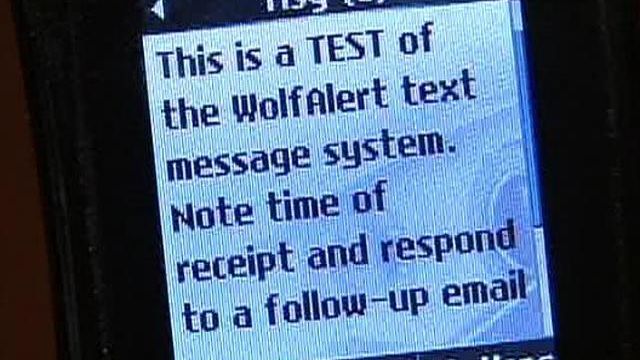Local News
N.C. State's 'WolfAlert' System Passes Test
N.C. State administrators say the results of last week's tests on the school's new text-message emergency alert system are encouraging but still present challenges.
Posted — UpdatedRALEIGH, N.C. — About 80 percent of students who registered their cell phone numbers with North Carolina State University's "WolfAlert" emergency safety system received the text message during testing last week, university administrators said Wednesday.
"We sent 12,000 text messages, and within about 16 minutes, 10,000 of those messages were received," said David Rainer, N.C. State's associate vice chancellor for environmental health and safety.
Some never got the message after one cellular phone company possibly considered it as spam, officials said.
The technology still presents challenges, officials said. That's why the system, developed as a result of last April's massacre at Virginia Tech, is part of a greater emergency alert plan that includes 11 sirens that line the campus and a media strategy.
Sending text messages at such a broad level is not a simple process, Rainer said. The university has to send the message to one company that then works with another company to distribute the message to all cell phone providers.
"I think the reality is because of the technical limitations of the system, they will never go out any faster," Rainer said. "And since we're relying on public networks, everybody is going to have the same challenges."
Campus officials said that as technology improves, so will the speed and efficiency of sending the text message alerts.
N.C. State is using the text message alert company provided by the University of North Carolina system of 16 campuses across the state.
Other universities are, too, such as the University of North Carolina at Chapel Hill. It has about 5,000 students, faculty and staff registered for "Alert Carolina." Both schools are encouraging more people to register.
• Credits
Copyright 2024 by Capitol Broadcasting Company. All rights reserved. This material may not be published, broadcast, rewritten or redistributed.






